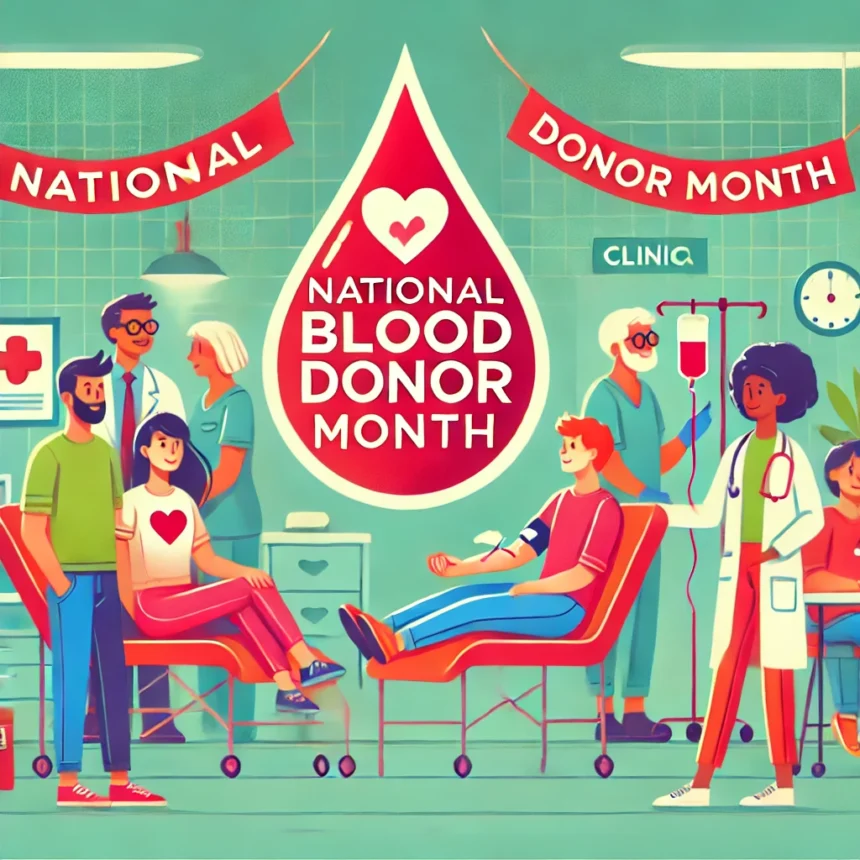National Blood Donor Month: History, Facts, Significance, and FAQs
The Power of Giving: 7 Vital Facts About National Blood Donor Month
National Blood Donor Month January is celebrated as, a time dedicated to recognizing blood donors and raising awareness about the crucial need for blood donations. This observance highlights the lifesaving impact of blood donors while addressing the continuous demand for blood, especially during the winter months when donations typically decrease.
History of National Blood Donor Month
National Blood Donor Month was first established in 1970 by the American Red Cross and other health organizations to encourage blood donations during January. The winter season poses significant challenges to blood collection due to:
- Adverse weather conditions that hinder donation drives.
- Seasonal illnesses reducing eligible donor numbers.
- Holiday distractions, shifting focus away from donating.
By creating a month-long observance, the aim is to counter these challenges and remind people of their ability to save lives.
Why Is Blood Donation Important?
Blood is essential for various medical treatments and emergencies. Here’s why your donation matters:
- Saves Lives: A single donation can save up to three lives.
- Supports Treatments: Blood is vital for surgeries, cancer treatments, and managing chronic illnesses.
- Emergency Preparedness: Hospitals rely on donations for trauma and disaster responses.
- Promotes Health: Regular donors often gain insights into their own health through free health screenings during donation.
Impacts on Daily Life
The importance of blood donation extends beyond hospitals and emergencies. Here’s how it impacts daily life:
- Community Resilience: Local blood supplies ensure prompt treatment for neighbors and loved ones.
- Economic Benefits: Avoiding delays in medical care reduces overall healthcare costs.
- Peace of Mind: Knowing there’s enough blood for emergencies offers reassurance.
Key Facts About Blood Donation
- Blood Types Matter: Type O-negative is the universal donor, while AB-positive is the universal plasma donor.
- Shelf Life: Red blood cells last up to 42 days; platelets last only 5 days.
- Frequency: You can donate whole blood every 56 days.
- Volume: Each donation is approximately 1 pint.
- Eligibility: Donors must generally be 16-18 years old (depending on state laws), weigh at least 110 pounds, and be in good health.
- Global Need: Every 2 seconds, someone in the U.S. needs blood.
- Safety: Modern donation practices are entirely safe, using sterile, single-use equipment.
How to Observe National Blood Donor Month
- Donate Blood: Find a local blood drive or donation center through the American Red Cross or similar organizations.
- Spread Awareness: Use social media to share your donation experience and encourage others.
- Host a Drive: Organize a blood drive in your community, workplace, or school.
- Thank Donors: If you know a regular donor, express your gratitude for their lifesaving contributions.
- Learn More: Educate yourself and others about the process and importance of blood donation.
Significance of National Blood Donor Month
This observance emphasizes the essential role of donors in maintaining public health. Blood cannot be manufactured; it can only come from generous individuals. During times of shortage, hospitals may face critical challenges in providing care, making donors the unsung heroes of medical success stories.
Wishing Donors and Advocates
- “Your gift of blood is a gift of life. Thank you for being a hero!”
- “Celebrate National Blood Donor Month by saving a life. You have the power to make a difference.”
FAQs About Blood Donation
Q: Does donating blood hurt? A: The process involves a quick pinch, but most donors find it painless and rewarding.
Q: How long does the donation process take? A: The entire process takes about an hour, with the actual blood draw lasting 10-15 minutes.
Q: Can I donate if I’m on medication? A: Many medications are acceptable. Check with your donation center for specifics.
Q: What happens to my blood after donation? A: Your donation is tested, processed, and distributed to hospitals based on need.
Q: Are there health benefits to donating blood? A: Regular donations may lower iron levels, reducing heart disease risks for some individuals.
Why Is It Important to Society?
Blood donation fosters community support, builds a safety net for medical emergencies, and reflects the best of humanity—compassion and selflessness. Without it, millions of lives would be at risk annually.
By celebrating National Blood Donor Month, you join a legacy of lifesavers. Whether by donating, spreading awareness, or simply thanking a donor, your actions contribute to a healthier, safer world. Let’s make every pint count!










